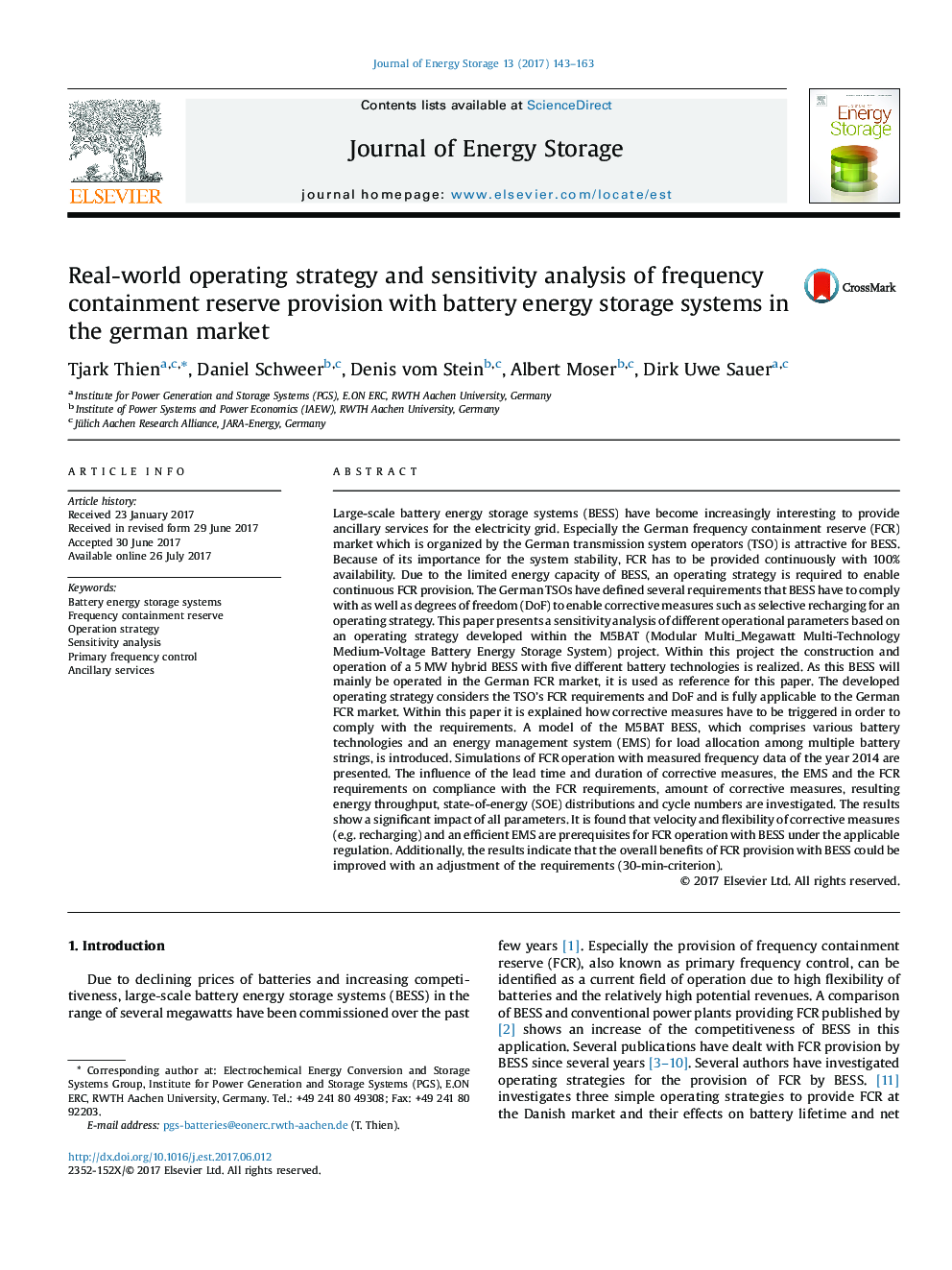| کد مقاله | کد نشریه | سال انتشار | مقاله انگلیسی | نسخه تمام متن |
|---|---|---|---|---|
| 5127328 | 1489009 | 2017 | 21 صفحه PDF | دانلود رایگان |
- Comprehensive study of operation strategy parameters and external preconditions.
- Definition of thresholds to trigger corrective measures.
- Applicable to the German frequency control market.
- Real-world proven operating strategy based on existing BESS.
- Hybrid BESS model including energy management system.
Large-scale battery energy storage systems (BESS) have become increasingly interesting to provide ancillary services for the electricity grid. Especially the German frequency containment reserve (FCR) market which is organized by the German transmission system operators (TSO) is attractive for BESS. Because of its importance for the system stability, FCR has to be provided continuously with 100% availability. Due to the limited energy capacity of BESS, an operating strategy is required to enable continuous FCR provision. The German TSOs have defined several requirements that BESS have to comply with as well as degrees of freedom (DoF) to enable corrective measures such as selective recharging for an operating strategy. This paper presents a sensitivity analysis of different operational parameters based on an operating strategy developed within the M5BAT (Modular Multi_Megawatt Multi-Technology Medium-Voltage Battery Energy Storage System) project. Within this project the construction and operation of a 5Â MW hybrid BESS with five different battery technologies is realized. As this BESS will mainly be operated in the German FCR market, it is used as reference for this paper. The developed operating strategy considers the TSO's FCR requirements and DoF and is fully applicable to the German FCR market. Within this paper it is explained how corrective measures have to be triggered in order to comply with the requirements. A model of the M5BAT BESS, which comprises various battery technologies and an energy management system (EMS) for load allocation among multiple battery strings, is introduced. Simulations of FCR operation with measured frequency data of the year 2014 are presented. The influence of the lead time and duration of corrective measures, the EMS and the FCR requirements on compliance with the FCR requirements, amount of corrective measures, resulting energy throughput, state-of-energy (SOE) distributions and cycle numbers are investigated. The results show a significant impact of all parameters. It is found that velocity and flexibility of corrective measures (e.g. recharging) and an efficient EMS are prerequisites for FCR operation with BESS under the applicable regulation. Additionally, the results indicate that the overall benefits of FCR provision with BESS could be improved with an adjustment of the requirements (30-min-criterion).
Journal: Journal of Energy Storage - Volume 13, October 2017, Pages 143-163
